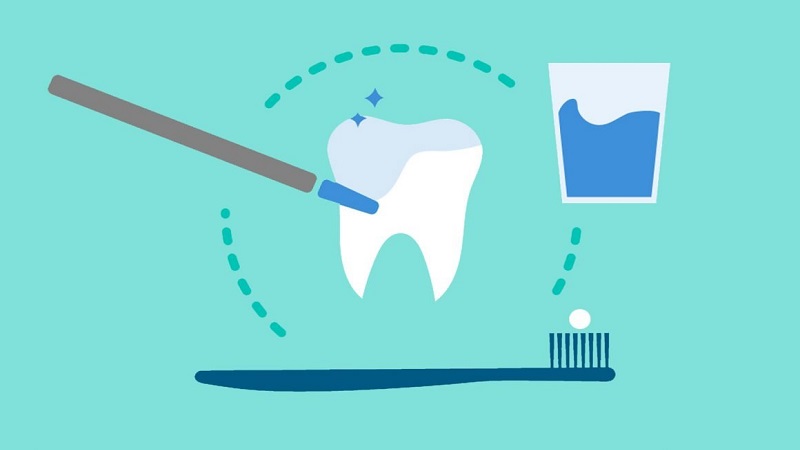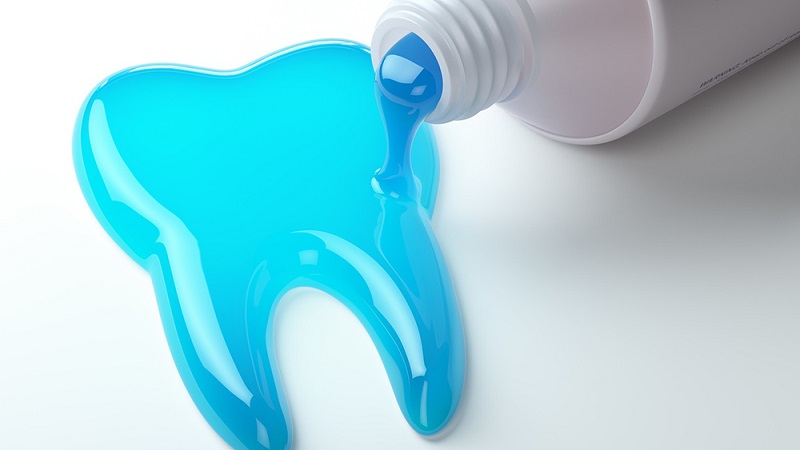Causes of soap taste in the mouth with high consumption of fluoride
You may have experienced a temporary soapy taste in your mouth after eating certain fruits and vegetables.. The cause of this situation can be related to the composition of these fruits. For example, carrots contain compounds called terpenoids that can cause this taste in your mouth.. The soapy taste of cilantro is due to your genes and the way your brain processes the smell. But in general, the feeling of soap taste in the mouth is not too worrying and serious. However, when the soapy taste in your mouth lasts for several hours or days, it is usually a sign of overexposure to sodium fluoride.. This condition may be serious. We intend to continue this article from Dr. Hossein Borjian's website The best implant in Isfahan Let's study and examine the consequences of high consumption of fluoride.
Risk factors for fluoride overdose
Sodium fluoride is found in various ingredients such as toothpaste and drinking water. This combination can be effective in preventing tooth decay and rebuilding tooth enamel. Small amounts of fluoride in toothpaste, dental compounds, and drinking water are generally safe.. However, high levels of sodium fluoride can be dangerous. This chemical is used in higher concentrations in insecticides and other industrial compounds..
People who work with or around sodium fluoride on a daily basis are at greater risk of fluoride poisoning and may experience a soapy taste in their mouths more than others.. Also, if a family member brings home clothes or other items contaminated with fluoride, they may put you at risk for this unpleasant taste in your mouth..
The risk of exposure to fluoride may increase in people working in the following fields:
- welding
- Plating
- water refinery
- Steel production
- glass production
- Mining
- agriculture (through insecticides)
- Soap taste and other symptoms of fluoride overdose
Suggested content : Time and dosage of antibiotics for dental infection
Moderate exposure to sodium fluoride powder or crystals may cause some of the following symptoms:
- Shortness of breath
- cough
- wheezing
- Skin irritation or burning
- Burning eyes, throat and nose
You may even have the following symptoms along with a soapy or salty taste in your mouth:
- stomach ache
- spasm
- Shock
- Numbness of the mouth
- Vomiting or diarrhea
- Pale skin
- Dilation of the pupils of the eyes
The onset of fluoride poisoning may last from a few minutes to two hours. If you are exposed to these compounds at your workplace, it is better to contact your doctor if you see these symptoms. If left untreated, dangerous levels of sodium fluoride can lead to death.
Symptoms of fluoride overdose in children
Low levels of fluoride in dental products and drinking water are safe for most people. However, children under the age of 2 should not use fluoride toothpaste. Parents should be careful when using toothpaste containing fluoride and other dental products such as mouthwash Provide their children with the necessary education. Even swallowing too much toothpaste to brush your teeth can cause stomach upset, vomiting, or diarrhea..
Also, watch out for white, brown, or black spots on your child's teeth. These may be a sign of excessive long-term exposure to fluoride products during tooth development. Contact your doctor or dentist if you see stains on your child's teeth.

Diagnosis of fluoride overdose
Call your doctor if you have a persistent soapy taste in your mouth. During the appointment, the doctor will ask questions about your symptoms and perform a physical examination.. Be sure to tell your doctor if you work with hazardous materials that may contain sodium fluoride or other chemicals.. Your doctor may also order lung and urine function tests to evaluate you.
If you take too much sodium fluoride, you should see your doctor right away. Some of the foods you can use in this situation are::
- Orange
- almonds
- Dairy products such as cheese or milk
- Green vegetables such as kale or broccoli
Avoid excessive fluoride intake
It is better to consider the following solutions to prevent excessive consumption of fluoride and consequently feeling the taste of soap in the mouth:
- Do not eat or smoke in contaminated areas.
- Wash your skin immediately and avoid burning.
- Keep dental products containing fluoride out of your child's reach.
- Wash your hands before eating, drinking, smoking, or using the restroom.
- Use a respirator to protect your lungs in areas where fluoride compounds are used or present.. Wear other protective clothing such as gloves and a face shield to protect your skin.
- Wash clothing contaminated with sodium fluoride before wearing it again. Do not take unwashed clothes home. Because it may infect family members.
- If you have concerns at work, talk to your boss. Ask about improving ventilation or isolating areas where chemicals are stored and used..
The most common causes of soapy taste in the mouth
When you experience the taste of soap in your mouth, it is usually only temporary.. However, sometimes it can indicate a serious condition. To diagnose the cause of the soap taste, it is important to pay attention to various factors such as the medications a person takes and his health history.
But some other possible causes for the taste of soap in the mouth are::
Consumption of contaminated food or drink
If a person eats from dishes that have not been thoroughly rinsed, they may have a soapy taste in their mouth. The taste of soap is so strong that even a small amount of it can change the taste of food and water..
The taste of soap in the mouth may be felt in the following conditions:
- Eating vegetables or fruits in containers that have not been rinsed properly.
- Using drinking straws that have not been washed well.
- Preparing and preparing food with contaminated hands
- The taste of soap in a person's mouth usually disappears in a short period of time in these cases.
medicines
Some medicines cause a special taste in the mouth. This taste can be soapy or it can interfere with food and produce a soapy or metallic taste.. Telavancin, an antibiotic used to treat bacterial pneumonia, some skin infections, and staph infections, can cause a soapy or metallic taste in the mouth..
This condition is not very serious, but it can be annoying, and unfortunately, it usually lasts as long as the person is taking the medicine..
Dr. Hossein Borjian's Instagram page The best implant in Isfahan
Stroke or brain injury
Every taste needs taste buds to send signals to the brain. If the brain cannot process or understand these signals correctly, it can change the taste of the food.. Some people experience changes in the taste of food during or after a stroke or other brain injury.. Others are not able to detect flavors at all. A soapy taste in the mouth after a stroke may be temporary or long-lasting. If a person experiences changes in their sense of taste, they should consult their doctor who can diagnose the cause.
Oral hygiene issues
Issues Oral health It can cause a soapy taste in the mouth. In addition, gum and tooth health problems can cause a soapy or metallic taste in the mouth.. If a person does not observe oral hygiene, food may remain in the teeth and gums and change the taste of food for him.. Gum disease can cause a soapy taste in the mouth. Some people also notice a strong metallic taste. Various oral and dental infections also cause an unusual taste in the mouth.
People should consult a dentist if a soapy taste is accompanied by jaw or tooth pain, swollen or red gums, or bad breath..
poisoning
Some toxins can change the taste of food or cause a soapy or metallic taste in the mouth.. An example of these toxins is arsenic, which may affect the taste of food. In this situation, the soapy taste is likely to be the first sign of poisoning, but most people quickly experience other symptoms such as changes in consciousness, confusion, and nausea..
Ways of communication with the specialized dental center of Najm
Attention :
- The scientific accuracy of the above published material should be confirmed by the patient's personal consultation with Dr. Borjian.
- This article is managed and published by the site admin.



